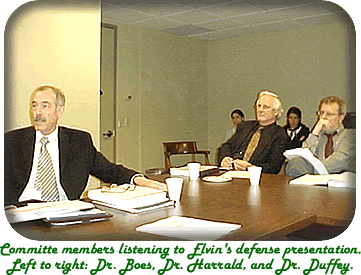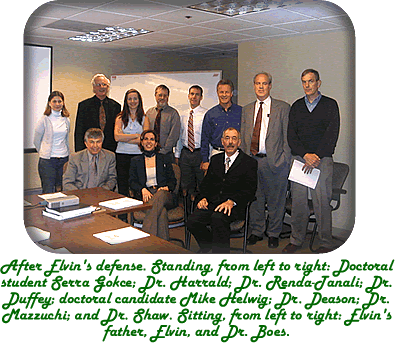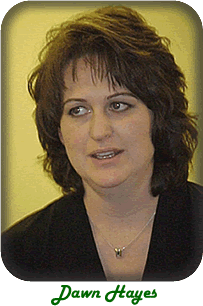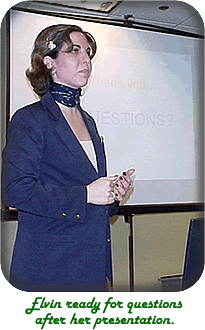On April 13, 2005, Elvin Yuzugullu defended her research on "Hydrogen Production Alternatives: Resolving Disparities and Examining the Stability of Decision Making Amongst Divergent Stakeholders," thus receiving her Doctor of Science (D.Sc.) degree from the E&EM Program of GW. You may view the research document and defense presentation online.
The main goal of Elvin's research was to design, evaluate, and test the robustness of a multiple criteria decision making (MCDM) model to serve as a decision-aiding framework and tool to assist decision makers in selecting among hydrogen production technologies. The complexities inherent in hydrogen production decisions are intensified when a multitude of decision makers with divergent interests, values, and preferences are involved. Elvin therefore aimed at investigating the capability of the decision-aiding tool to facilitate convergence of opinion.

The research consisted of two main phases: (1) model design and development; and (2) model application, assessment and testing. A diverse set of decision makers from different sectors participated in the research via several interactive rounds of anonymous surveys. The first phase involved the creation of an objectives hierarchy (by the decision makers) with criteria relevant to the hydrogen production decision. The second phase elicited importance weights for the criteria developed, and examined the extent of convergence of decision maker values.
A key and unexpected conclusion from the research was that contrary to initial expectations, the interactive approach of objectives hierarchy development resulted in the greatest amount of convergence of opinion. This interactive approach was found to facilitate convergence of decision maker opinions by enhancing understandings of the issues, and clarifying and structuring thoughts. As efforts for the transition to a hydrogen based economy give way to more actual project data, the decision-aiding framework developed may serve to be highly beneficial in aiding decision makers.
Dr. Jonathan Deason was Elvin's research advisor. Dr. Thomas Mazzuchi, Dr. Jack Harrald, and Dr. Michael Duffey served as committee members from the Engineering Management Department. Elvin also had two outside committee members: Dr. Eldon Boes (Director, Energy Analysis Office of the National Renewable Energy Laboratory), and Dr. Nejat Veziroglu (University of Miami and UNIDO-International Center for Hydrogen Energy Technologies, Istanbul-Turkey).

On April 22, 2005, Dawn Hayes successfully defended her doctoral dissertation entitled “A Decision Model for Remedy Selection Under the Comprehensive Environmental Response, Compensation and Liability Act (CERCLA): A Case Study on Department of Defense Facilities,” thus receiving her Doctor of Science (D.Sc.) degree from the E&EM Program of GW.
In her research, Dawn developed a decision support tool for selecting environmental cleanup remedies at contaminated DOD sites. Dawn’s work could have a large impact on Federal environmental restoration, since the Department of Defense spends about $2 billion per year on environmental restoration activities related to CERCLA. So far, about $27 billion has been invested in this area, with projected outstanding liabilities of about $70 billion to address environmental restoration needs at 30,000 DOD sites.
A total of 20 CERCLA remediation experts participated in Dawns’ research, which utilized the Bradley-Terry model to elicit judgments of the experts on 21 criteria on a Likhert scale using pairwise comparisons. The results were compared to information contained in six historical CERCLA Records of Decision to validate the model and to conduct a sensitivity analysis of the results. Professor Lile Murphree was Dawn’s Research Advisor, and Professors Thomas Mazzuchi, Shahram Sarkani, and Jonathan Deason served on her Examining Committee.



